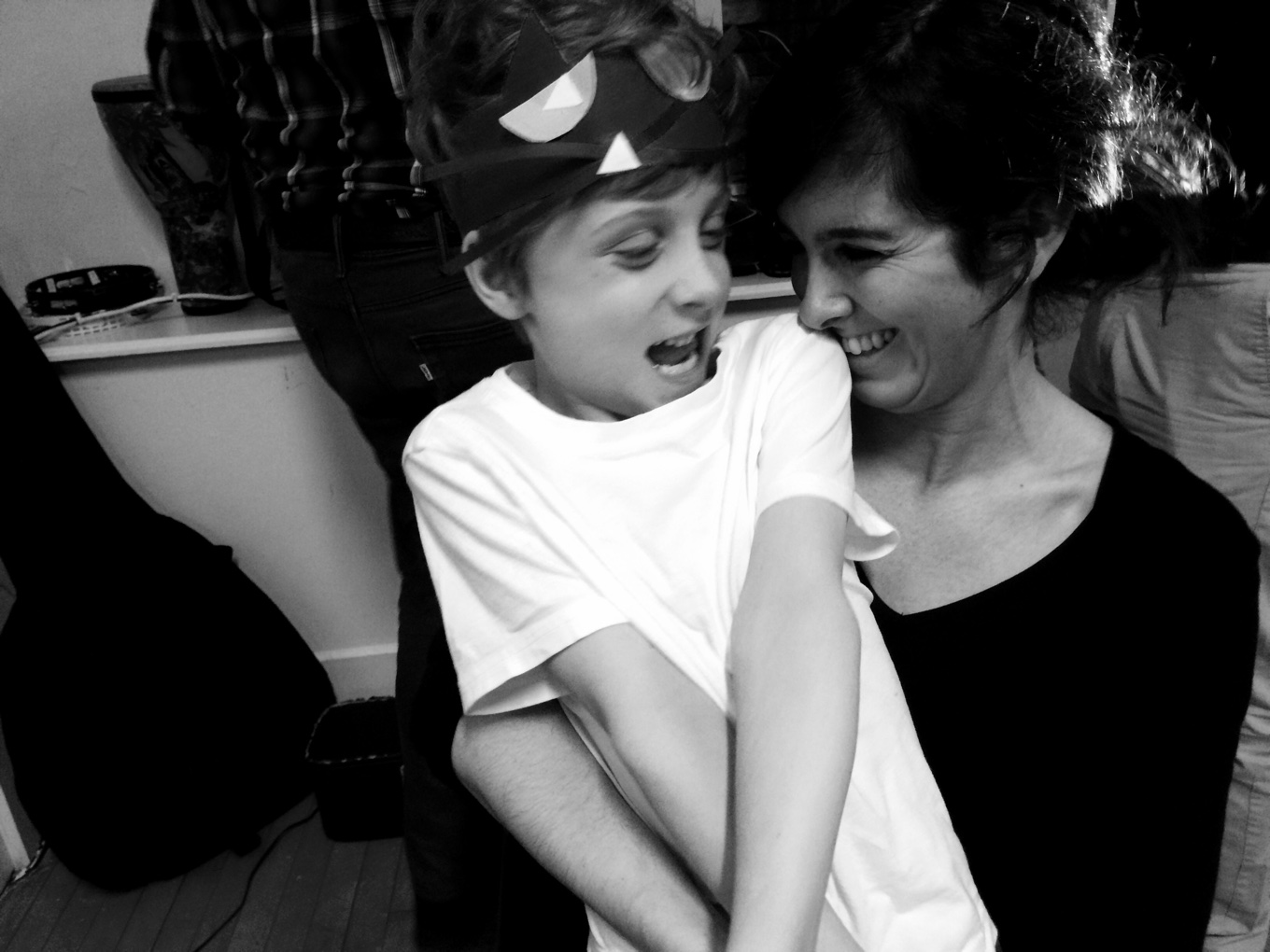C wrote a book with a message: never underestimate him
I found him at our desk, pieces of letter-sized paper stapled together splayed before him, writing.
“What are you doing, C?”
“I’m writing my book.”
“Your book?”
“Yes. Now may you please go away?”
I went away. For about ten minutes. Then I came back. He was still writing. Then he wasn’t; holding his pen thougthfully before him, he pondered his next word. I came up behind him to take a photo and he didn’t even notice me. This was unusual.
This boy never stops moving. He climbs, runs, jumps, leaving a wake of flipped chairs and furniture stripped of its pillows in his wake. He focuses on iPad games, but not much else. Reading, writing, drawing? Not his bag.
The inspiration
Apparently he’d seen his mom writing earlier and decided he wanted to be a writer, too. So there he was, at our desk, writing his book: I have a story by C K McWatters. It took over 45 minutes and ultimately clocked in at what is, for him, a whopping eight pages.
The first page of I have a story
It was full of details about his life and his family. Accurate details. Details we’d shared with him maybe once before, years ago — like the story about how his grandmother had induced labor by walking up and down stairs in the hospital. Details he’d apparently memorized and now decided to set to paper.
And then there’s the tone, at times conversational and cheeky: “Do you know what a twin is? If you don’t and you really want to know and you don’t, I have a story buy it from me for $4.00 only.” He was writing for an audience.
I should know better
It’s been a tough year. C lost his grandfather and his grandmother. His mom is fighting cancer. His world is more tumultuous, so he’s seemed more scattered than usual. Tough for a kid who on his best days struggles mightily with inattentiveness and anxiety, not to mention the fine motor skills required to put pen to paper and formulate a story.
Nonetheless, that’s precisely what he did for 45 minutes and eight pages. He wrote his story.
I’m ashamed to admit I was surprised. He always surprises me. And even though I always say presume competence, I forget to do it myself. Of course he remembers everything we tell him, even the silliest story, even when it looks like he’s not paying attention. Of course he has stories inside him. Of course he can write a book.
Of course he did.
Author photo
I love C’s book, but I think my favorite part is the image he drew of himself on the back cover, a tiny figure in a giant sea of white, capped by a single word: ME.
In case you didn’t know
C is nine. He’s autistic and amazing.
















 Two years ago, my son's previous school held a holiday concert. C had to be supported on stage by a teacher's assistant because he was so overwhelmed. The concert was loud and chaotic, all the more surprising since his school served children who often have major sensory issues. But his reticence to be part of the event went deeper than that: he was struggling.
Two years ago, my son's previous school held a holiday concert. C had to be supported on stage by a teacher's assistant because he was so overwhelmed. The concert was loud and chaotic, all the more surprising since his school served children who often have major sensory issues. But his reticence to be part of the event went deeper than that: he was struggling.